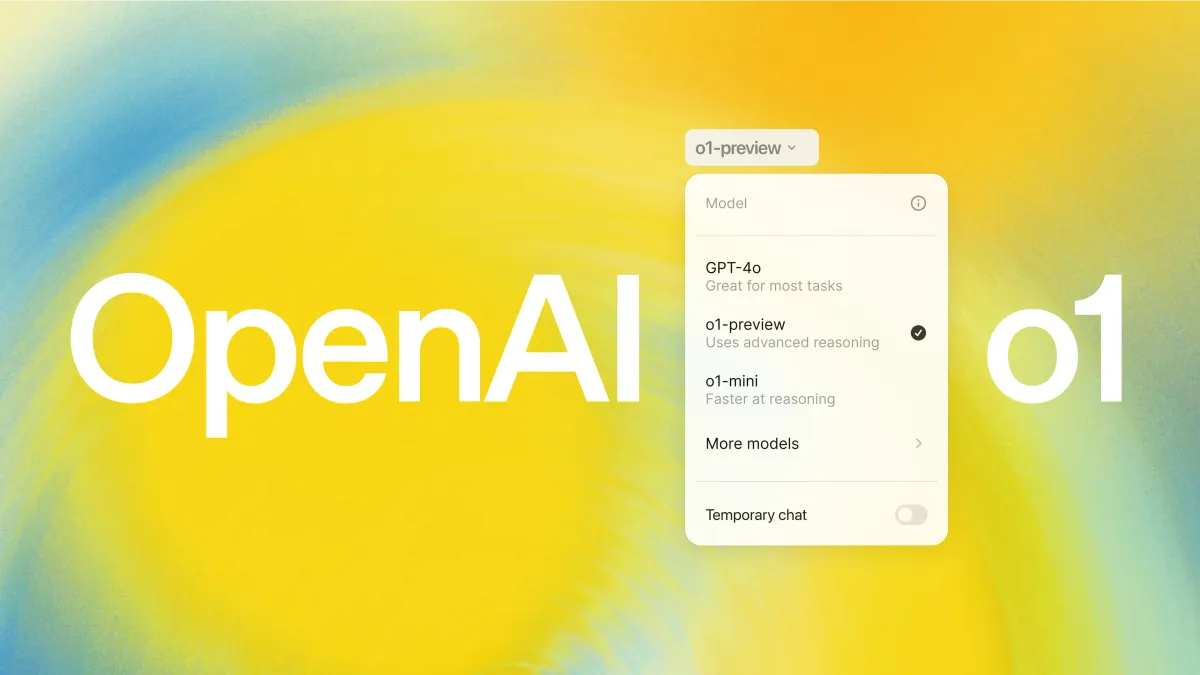OpenAI Unveils Groundbreaking AI Model o1 with Human-Like Reasoning and Advanced Problem-Solving Capabilities

Introducing OpenAI's New AI Model: o1
OpenAI has recently unveiled a groundbreaking AI model, originally known internally as Strawberry and publicly released as o1 on September 12, 2024. This model represents a significant enhancement in AI technology, bringing forward innovative capabilities and functionalities that set it apart from previous versions.

Human-Like Reasoning and Enhanced Availability
The o1 model is designed to perform tasks that require human-like reasoning, marking a profound advancement in artificial intelligence. Such tasks include multi-step problem-solving and complex calculations, which were previously challenging for AI to execute effectively. The model's ability to engage in human-like reasoning allows it to better understand and respond to user inquiries with deeper insight and accuracy.
OpenAI has made a preview version of the o1 model accessible to a wide range of users, including ChatGPT Plus and Team subscribers, as well as developers with access to OpenAI API Tier 5. This strategic move ensures that early adopters can explore and utilize the model's novel features and functionalities, providing valuable feedback for further refinement.
OpenAI 01
Enhanced Functionality and Problem-Solving Capabilities
The o1 model leverages a chain of thought prompting technique, which allows it to spend more time calculating and processing responses before delivering an answer. This method improves the model's performance in solving multi-step problems, including intricate math equations and coding challenges. Its adeptness in these areas is demonstrated through impressive results in competitive programming tests and math olympiads, where it has achieved notable rankings.
In addition to solving mathematical and coding problems, the o1 model is capable of performing unique tasks such as crafting grammatically correct sentences without repeating any letters and solving simple crossword puzzles. These abilities exemplify the model's versatility and sophisticated problem-solving aptitude.
OpenAI 01 - Genetics
Model Variants and Limitations
OpenAI has introduced two versions of the model: the standard o1-preview and the more compact o1-mini. The o1-mini variant is designed to offer faster performance and cost efficiency, being 80% cheaper than its larger counterpart. Despite its reduced size, o1-mini is particularly effective in coding tasks, making it a valuable asset for developers seeking an economical yet powerful AI tool.
However, it is important to note that the o1 model lacks certain features present in other ChatGPT models, such as the ability to browse the web for information or upload files and images. These limitations may affect its utility in specific scenarios, but the model's core capabilities remain robust and widely applicable.
Applications and Security Considerations
The o1 model's versatility makes it suitable for a variety of professional applications. Healthcare researchers can use it to annotate cell sequencing data, physicists can generate complex mathematical formulas, and developers can build and execute multi-step workflows efficiently. These use cases illustrate the model's potential to enhance productivity and innovation across different fields.
From a security perspective, the o1 model has received a medium safety rating in several categories. Its advanced reasoning capabilities enable it to comprehend and adhere to safety policies more effectively. Nevertheless, there is a concern regarding its basic abilities for in-context scheming, which necessitates careful monitoring and regulation to prevent misuse.
OpenAI 01 - Logic Puzzles
Conclusion
OpenAI's new AI model, o1, represents a significant leap forward in AI technology, with enhanced reasoning abilities, versatile problem-solving capabilities, and diverse professional applications. While there are inherent limitations and security considerations, the model's potential benefits make it a notable addition to the evolving landscape of artificial intelligence.

